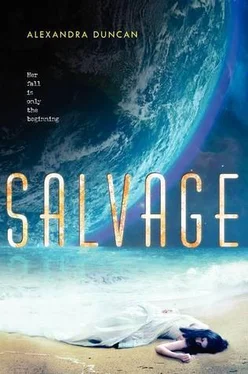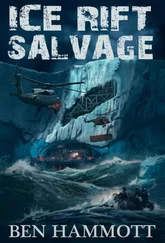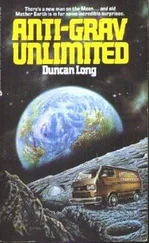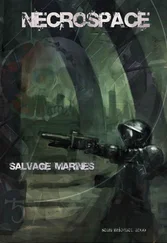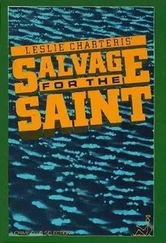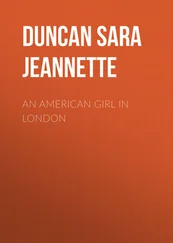Miyole looks out the window into the soft dusk falling over the ocean. She’s aged a million turns since we left her safe on the Gyre before the storm.
“My manman’s dead,” she says. “Her and Kai.”
“Do you have any other family?” I ask, even though I think I already know the answer.
Miyole shakes her head. She turns from the window. “We should go to that place you always talk about. Mumbai,” she says. “We can find your tante.”
Dr. Soraya Hertz, Mumbai University at Kalina. It isn’t much, but it’s more than nothing. One of the sloop’s aft engines has taken on a gutter and whine. I haven’t been able to check the ship’s armored tile plates, but I suspect some of them are damaged or else ripped off altogether in the storm. We need to set down, and soon.
“Right so,” I say. “Mumbai.”
I scroll through the navigation log and select the location of the nearest city east of us—the one with the slippery rice dealer. Once we’re nearer to land, we can pick up the network and find Mumbai’s coordinates. And then we’re gone, skimming unsteadily over the water with the engines at quarter lift. The sun goes down before us. We are alone in the air. I can’t afford to look away from the sloop’s jittering instrument panels, but I reach out my hand and take Miyole’s as the night swallows us whole.
W hen we first see Mumbai, I think I’ve fallen asleep at the controls. Only I could never dream something like this. A towering seawall surrounds the city. Clusters of squat, round buildings cling to the top of it, like the barnacles that grew on the sides of the Gyre’s ships. Inside, massive crystalline structures rise from the earth and disappear into the low-lying clouds. Skyscrapers, that’s the word Perpétue would have used. To the north, the land rises in a patchwork of roofs and trees, divided by gray trainways and the gossamer threads of rivers.
“Miyole,” I say.
She stirs awake. We both stare at it, the city growing before us. The sloop’s controls lie forgotten underneath my hands, until the coms channel crackles and a clipped voice directs us to somewhere called Navi Flightport on the outskirts of the city. I guide us lower and eastward, where the houses become concrete, and then crooked roofs and blue tarp, swaths of shanties blossoming along the edges of a swamp. At last the flightport comes into view. The sloop rocks as we descend through the air currents and finally touch down with a clumsy bang on the landing pad.
The ship’s as bad as I feared. There are gaps in its skin where the wind tore shield tiles free. The whining aft engine is a snarl of bent, blackened metal. We can limp along without it, but there’ll be no more runs up to Bhutto station or even across the sea until we find a way to fix it. I still have the square of pay plastic Perpétue gave me for the information port, but it takes near half what’s on it to dock the sloop at Navi Flightport for a day, and the rest to buy our own entry into the city without “papers,” as the uniformed woman corralling us through the entry gates calls them, though she really means a palm-sized smartcard what tracks our comings and goings.
The hallway outside the gates funnels us past advertisements playing on the station’s walls, past shops selling food and hats and tiny motorized fans. The crowd from an arriving passenger flight swallows us up and pulls us along, down into a narrow room lined with seats. It isn’t until a soft chime sounds and the doors seal themselves shut that I realize we’ve boarded a train car. I wish I could feel the thrill of it—my first time aboard a train—but I cannot. It whisks us through a dark tunnel, and then out into the dazzling sunshine, along the side of a landing yard crowded with thousands of craft glinting in the sun.
The car slows. The chime rings again, followed by a woman’s voice speaking a bubbling, melodic language I don’t understand, and then, “Navi Flightport Authority welcomes you to Mumbai, located on one of the world’s oldest surviving peninsulas. Please enjoy your stay in our beautiful historic city. Svaagatam!”
I want to ask Miyole if she knows what a peninsula is, but she looks the way I feel—wrung out and hollow, as if any words might echo through her.
“All we have to do is find my modrie.” I squeeze her hand. “We’re close. Don’t worry.”
We stand on the lip of a crowded platform outside the spaceport. Everything is too bright and loud. Hulking passenger trains roar by, stirring up gusts of hot wind. The smell of burned ozone, simmering spices from the pushcart at the far end of the platform, and the oily stink of hot pavement stews in the air. On the palm-lined street below, crowds of people press by, some on foot, some high on creatures I think are called horses.
I should be awed, but I only feel numb. The world should be silent and gray now Perpétue is no longer in it, not teeming with voices and light.
“There’s got to be a map someplace,” I say. And then I spot it through a break in the crowd, a freestanding smartboard in the middle of the platform.
We make our way over. “How do we . . . ,” I start to ask, but stop when I glance down at Miyole’s face. It’s utterly blank, as if whatever makes Miyole Miyole has evaporated from her body.
She steps up to the smartboard. “Map,” she tells it, and an aerial view of the city springs up in front of us. To me, it looks like a knot of letters and lines and shapes, but Miyole focuses it easily with one bandaged hand.
“We’re here.” Miyole points to a flat, ticklike shape to the far right of the tallest buildings. “Mumbai University, please,” she says.
A column of rectangular boxes springs up, each connected to a spot on the map by a thin white line. There must be a dozen of them.
Miyole frowns at me. “Which one is it?”
For one brief, panicked moment, I can’t remember. I haven’t slept in over a day. My head feels thick and grainy. “Ka. . . Kalina.” The name comes to me in a rush of relief. “Mumbai University at Kalina.”
Miyole taps the map. It zooms in and focuses on an image of a weathered gray building flanked by palm trees. A light breeze stirs their fronds, and blurs of people pass by on the pavement.
I step closer. “How do we get there?”
Miyole touches a series of yellow dots, which link together and form a line from our place on the map to the university. A train schedule slides into view at the corner of the board. I can piece out the words now, the number and times. Train fifty-nine, estimated arrival 10:48 a.m. Train twenty-four, estimated arrival 10:52 a.m. Iri might be alive now, we might both be safe with my modrie Soraya already, if only one of us could have read what the hologram was trying to tell us. I would never have met Perpétue and Miyole and brought all this trouble on them. Perpétue might not have been gone that day if she hadn’t been teaching me to fly. She might be alive, and Kai and his family, too. . . .
Stop. I hear Perpétue’s voice, as if her ghost is speaking in my ear.
“It says we can take train twenty-four to cross the river and then switch to number one-oh-five.” Miyole looks up at me.
“Right so.” Together we walk to the edge of the platform, away from the other travelers.
“When we find your tante,” Miyole says, looking down at the track. “Will she let me stay?”
Читать дальше
